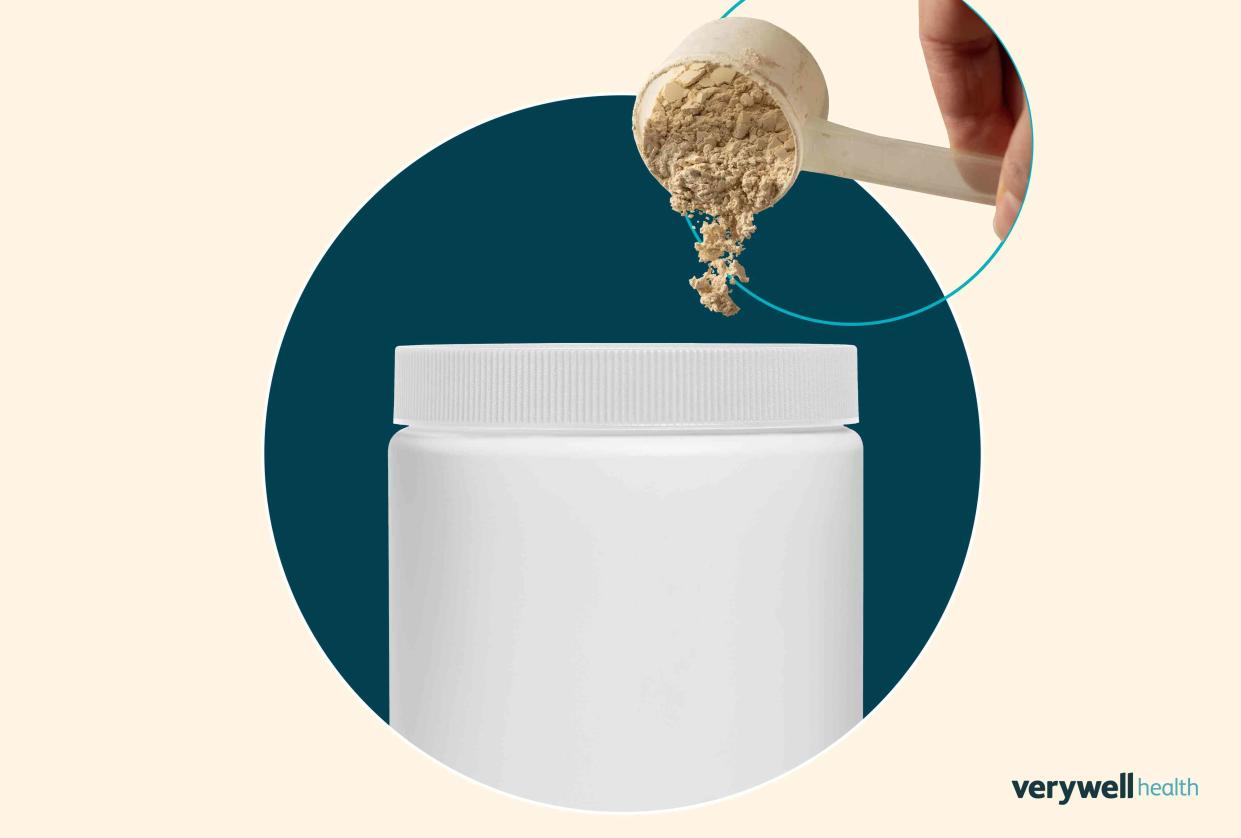Are Colostrum Supplements Worth a Try? Here's What Dietitians Say

Photo Illustration by Amelia Manley for Verywell Health; Getty Images
Fact checked by Nick Blackmer
Key Takeaways
Colostrum is a nutrient-rich substance for newborns and is produced by a mother before breast milk.
Colostrum supplements are intended to mimic the benefits of human colostrum and typically come from cows.
While the available data supporting the health effects of colostrum supplements are promising, more data is needed to confirm whether they truly benefit the health of adult humans.
How off-base can 2,000 4-star reviews be? This is the sort of question you might ask yourself if you’re thinking about trying a colostrum supplement, the latest nutritional trend linked to everything from immune support to better hair.
A better question to ask yourself: What is colostrum? If you’ve never heard of it, you might be caught off guard.
What Is Colostrum?
Colostrum, often referred to as “first milk,” is a form of milk produced by the mammary glands of mammals—including humans—in late pregnancy and the days following birth. This yellowish, nutrient-rich fluid is packed with antibodies and growth factors newborns need for everything ranging from immune health to gut health.
Takeaway
Some compounds found in colostrum include lactoferrin, lymphocytes, leukocytes, interleukins, growth factors, fatty acids, conjugated linoleic acid, amino acids, vitamins, and minerals.
In an effort to package up these benefits for adults, manufacturers have introduced colostrum supplements. Most colostrum supplements on the market are sourced from bovine (cow) colostrum, but they can be sourced from other mammalian milk as well.
“Human colostrum and bovine colostrum are actually very similar in their properties, and their nutritional composition is comparable as well,” Meghan McMillin, RD, IBCLC, a registered dietitian and lactation consultant, told Verywell. “They both contain high amounts of immunoglobulins,” which are antibodies that help the body identify and neutralize foreign invaders like bacteria and viruses.
Colostrum supplements are available in various forms, including capsules, powders, and liquid extracts. Their price can vary widely depending on factors such as product concentration, brand, sourcing quality, and the processing method used. Generally, you can expect to pay anywhere from $10 to $50 for a supply that lasts about a month.
What Are Colostrum Supplements Supposed to Do?
Colostrum supplements tend to be marketed for the same benefits human colostrum offers to infants: immune support and gut health. In addition, some brands highlight improvements in skin, hair, nails, and even athletic recovery.
User reviews of popular colostrum brand ARMRA range from reports of “glowing” skin to regular bowel movements.
Is There Proof?
Things get a little murky when it comes to data actually supporting these benefits. Research indicates that bovine colostrum intake could be beneficial to the health of adult humans, but more robust evidence is required to support this. Most of the sample sizes are quite small.
Bovine colostrum may be particularly useful during cold and flu season, a meta-analysis published in the Journal of Functional Foods suggests, thanks to the supplement's link to fewer incidents of upper respiratory tract infection. This was based on data from 445 subjects from seven different trials, meaning the dosages used and the types of people involved are too inconsistent to draw conclusions from.
“A 2022 systematic review published in Nutrients found that bovine colostrum may support gut health [among high-performing athletes] by improving gut integrity,” registered dietitian Lisa Andrews, RD, told Verywell. “Keeping your gut lining strong makes it less permeable, allowing fewer toxins into your bloodstream.”
The authors of this study note that “well-designed, placebo-controlled, and randomized studies” are necessary both to confirm the long-term safety and efficacy of these supplements in humans, as well as to determine optimal dosing.
“Other research has suggested colostrum supplementation may help treat diarrhea,” Andrews said. In a 2020 randomized controlled trial, 160 children with diarrhea who received a bovine colostrum supplement had significantly fewer symptoms after 48 hours, including a lower frequency of both vomiting and diarrhea.
There’s Likely No Harm in Trying
Based on current research, taking bovine colostrum supplements appears to come with very little risk if you don’t have a dairy allergy, McMillin said. It just may also come with very little benefit. The processing techniques used to make the supplement, like dehydrating, may impact how well it actually works.
“These supplements are quite new and have no conclusive research to support their broad stroke health claims. The research we do have has been conducted with small sample sizes, and many products lack third-party testing or any regulation at all,” registered dietitian Caroline Thomason, RD, told Verywell. She said does not recommend these products.
“At the end of the day, there is no ‘magic supplement’ for your health, digestive issues, or immune system, despite the compelling claims colostrum supplement companies make,” Thomason added.
What This Means For You
Taking colostrum supplements comes with little risk. The question remains about whether taking them truly supports your health.
Read the original article on Verywell Health.

